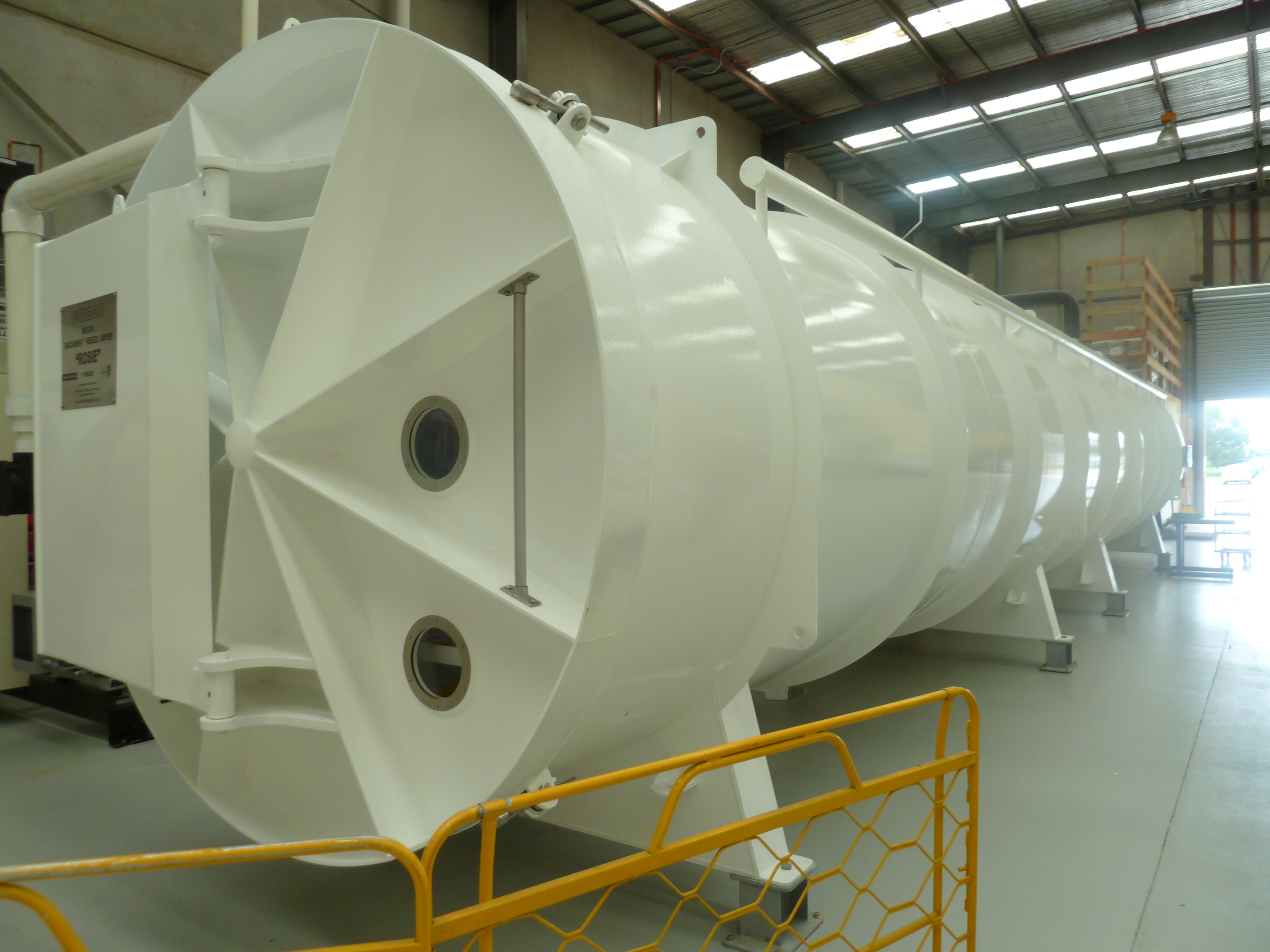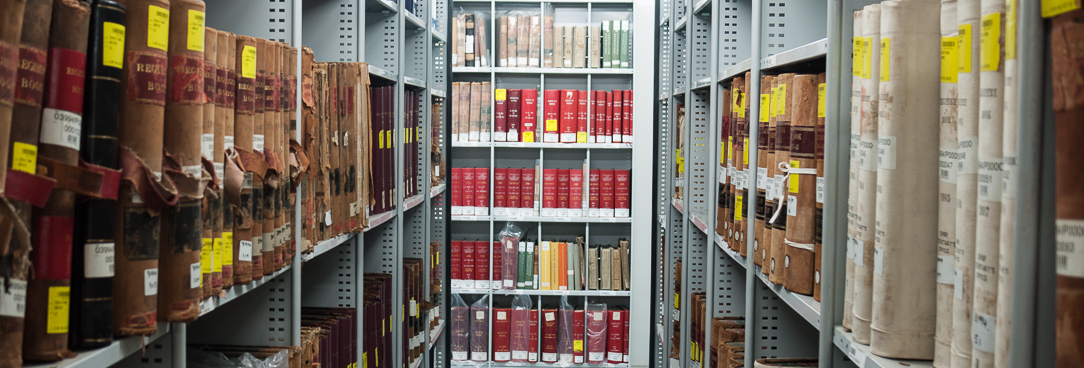Author: Lisa Fletcher
In early 2011, Rochester Historical Society, Charlton Golden Grains Museum and Skipton Historical Society were all affected by floods. Public Record Office Victoria provided assistance through volunteering in Charlton to help clean up and salvage objects, organising freeze-drying of flood-affected items at Steamatic and maintaining an online database of flood-affected organisations which was accessed by arts and culture agencies. Twelve months on we look at how these groups are progressing.

Twelve months on from the Victorian floods and things are slowly returning to normal for the Rochester Historical Society, Charlton Golden Grains Museum and Skipton Historical Society – in part thanks to Public Record Office Victoria, Atlantis, Steamatic and a machine called Rosie. Driving back and forth between some of the flood affected towns and Melbourne, it was always a great sight to see ‘Rosie’, the vacuum freeze-drying machine at Steamatic. Containing 61 cubic meters of vacuum space, Rosie looks like something out of NASA. Just the sight of this enormous machine is enough to instil confidence when you have a boot-load of eskies full of frozen volumes and documents. Rosie’s vacuum freeze-drying process enables the drying of frozen paper without the water liquefying. Gas is released and extracted out of the chamber meaning that the frozen paper doesn’t get wet again whilst it dries out. All of the items taken to Steamatic for freeze-drying have now been returned to their collections. Picking up the first load bound for Skipton, it was remarkable how good they looked. After receiving them, Janet Walsh from the Skipton Historical Society wrote to us: “We thought our precious memorabilia was gone forever, but the papers are perfectly readable, and all our indexing and cataloguing of information has not gone to waste after all.” All three organisations are getting back on their feet. The reopening of the Skipton Historical Society took place in August 2011 and was a fantastic celebration of all the hard work they had undertaken to reopen their doors. Their exhibition space has also grown, with the group now also using the building next door for displays. At the Charlton Golden Grains Museum, Carolyn Olive reports that building works are now finished at the museum and volunteers are unpacking boxes containing the collection. They are taking the opportunity to redesign the entire museum layout and display content which Carolyn describes as an “exciting but daunting” task.

The museum expects to reopen in July. Lorraine Haines reports from the Rochester Historical Society that they still in the process of unpacking boxes from Steamatic and “finding many treasured papers in perfect order”. Restoration and repairs to the main building are complete (and it looks great) and they are now working on the restoration of their two other buildings. Lorraine says that there is “still much to be done” and that they hope to reopen around October 2012. Overhearing locals at the reopening of Skipton Historical Society reminiscing over the photos on display made me realise just how important these places are to their communities. The floods brought much turmoil but also made visible the enthusiasm and passion of hardworking volunteers in Charlton, Rochester and Skipton. We wish them the best of luck over the coming months.
If you are experiencing issues with your records after flood damage, please contact Lauren Bourke, Community Archives Coordinator at Public Record Office Victoria on 03 9348 5642.
Material in the Public Record Office Victoria archival collection contains words and descriptions that reflect attitudes and government policies at different times which may be insensitive and upsetting
Aboriginal and Torres Strait Islander Peoples should be aware the collection and website may contain images, voices and names of deceased persons.
PROV provides advice to researchers wishing to access, publish or re-use records about Aboriginal Peoples
